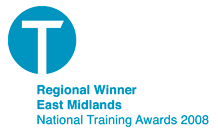Re-tendering is a difficult business
What are the hurdles and how to overcome them
Re-tendering for an existing contract is the most difficult activity which any organisation faces. (TfC Staying Ahead 2010)
This statement was true then, and more so as time progresses.
Staff have attended meetings with officers, the feedback seems to be good. Service user comments are positive. Everyone is happy, or so it seems. All we have to do is to set out in the tender what we are doing now; state as often as possible how well we are working with xxxx Council; give examples of our intentions to work with the Council and we will win again right? Wrong!!
So often providers employ this strategy in their re-tendering and it comes as a profound shock when the contract is awarded to another provider. The shock can be all pervasive for senior managers, managers, workers and well as service users and their families. The key question for all providers now that all outsourced work for public bodies is subject to formal tendering processes is “What should I do to be sure that I will be awarded the contract on re-tender?”
The retender process starts well before the issue of the new tender.
The original tender documents
Go through the document in detail then take the following action:
- Review the requirements of the original specification, tender and contract:
- Identify all of the specific requirements;
- Collect, collate evidence which demonstrates that you have met each of the requirements and dliveered the reequired outcomes;
- Have you done exactly what you said you would do?
- Identify any areas which have been overlooked and put urgent remedial action in place.
Above all collect as much evidence as possible about your performance in delivering the contract.
Measure and Evaluate
It is surprising how frequently providers are unable to provide clear, quantitative measures of outcome achievement. Ultimately this is the product which the purchaser is buying. Value for money means delivering the contracted outcomes at the standard required for the best price. But is not just about outcomes, it is also about the quality of the outcomes achieved. Therefore:
- Measurement – of outcomes delivered; and
- Evaluation – of the quality of the outcomes.....
Go hand in hand and complement each other
Systems must be in place to undertake both activities and evidence is required that both are being achieved.
Internal questioning
The majority of tenders require evidence of “continuous improvement”. This demands a level of internal questioning which moves from:
- the assumption that because all seems well we do not need to take any action;
to
- questioning, by all staff at all levels and governance, as to what can we do better, what improvements can we make, how to we increase the outcomes delivered, meeting and exceeding the specification and other requirements.
Meeting the new specification
When the re-tender is Published
1) Remember that the new contract is offered for a new specification. The purchaser will have undertaken a number of reviews and a consultation. The result is a new specification. The tender must be written for the new specification not simply re-iterate the previous service;
2) Do not assume that because the tender is for “your contract” it will specify exactly the service you are currently delivering: there may be significant changes, sometimes the changes can be quite subtle. You will need to set out what you will do to meet the new specification;
3) Do not write your tender using the present continuous tense, explaining how the service “is being” delivered. The purchaser want to know how the new specification “will be” delivered. Elements of the current service may not be relevant to the new specification. Always use active rather than passive language so that the purchaser can see clearly what will happen;
4) Do not assume that the purchaser is entirely happy with the service currently being delivered. They may have doubts and concerns which have not been shared. As a result they may be testing the new service by placing your offer against a number of others to decide which meets the requirements more closely;
5) Do not name the purchaser for whom you are re-tendering. To indicate in any way that you are currently providing services for the purchaser can be interpreted as claiming competitive advantage. At best such claims will be ignored and therefore a waste of available words.
6) Do provide evidence of performance such as: outcome delivery; quotes from CQC reports, from other contracts, preferably from other purchasers.
7) Do treat every aspect of the new specification totally objectively. The purpose of the exercise is offer a solution which provides the purchaser with confidence that you have the capacity and capability to meet the new specification. Your competitors will be doing the same thing.
8) Do review the staffing required to meet the new specification rather than simply keeping staff in post. You must justify the need for each individual at every level, stating the proportion of their time they will spend on the contract;
9) Do ensure that your Board reviews all policies annually
10) Remember that the purchaser may not take into account anything that they know about you. So any specific reference to the existing service will be ignored and as a result its inclusion will be a waste of available words.
External Critical Friend
Finally do obtain an external, objective view at an early stage in drafting. The “critical friend service” provided by TfC through the Tender Review Service has been instrumental in helping many providers re-tender successfully. Indeed, as a direct outcome of this service there are providers who consistently score in the range of 90% to 99%. It is a very powerful tool which can deemonstratee outstanding tendering success for both those who are experienced in tender writing and those who are not.
For help with all matters related to re-tendering for an existing contract, or for tendering for new business please see our Tender Review Service, or
Telephone:01629 57501
email: info@tenderingforcare.com



